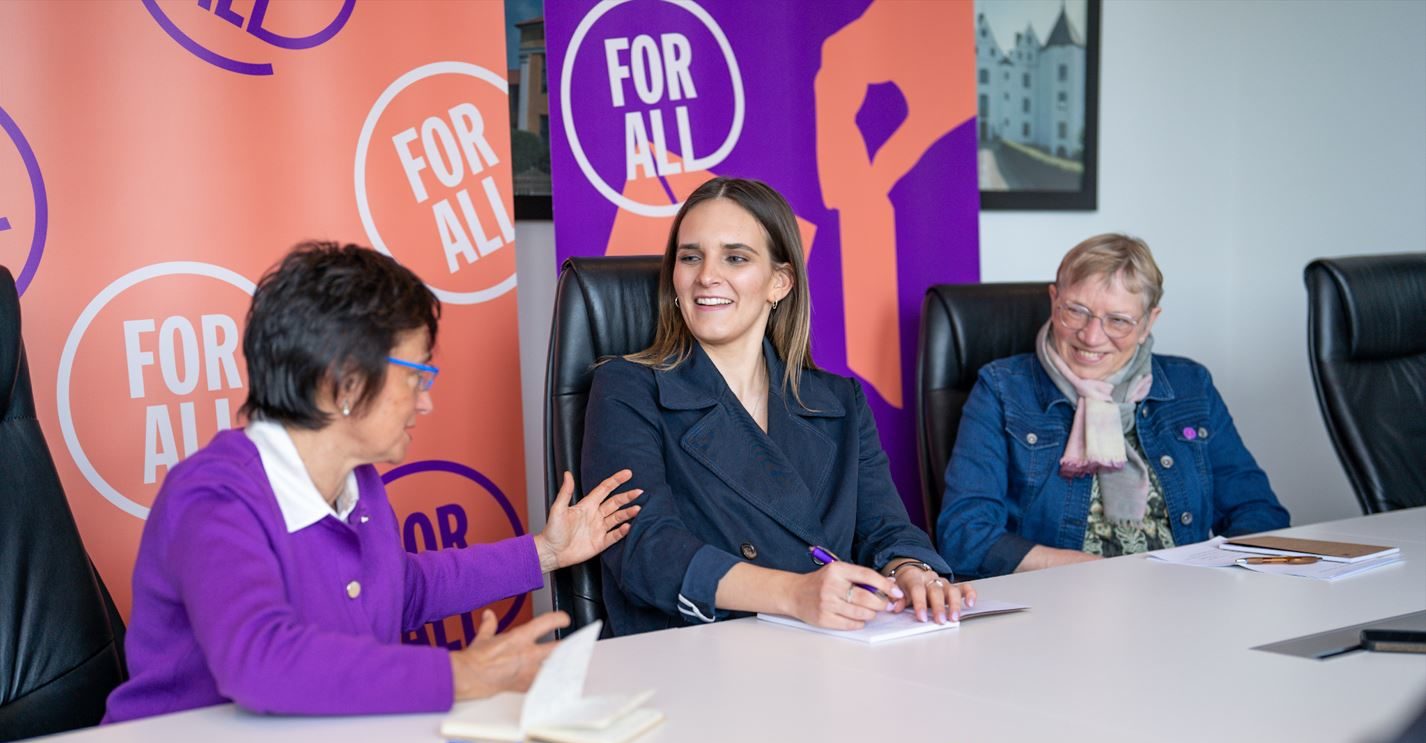What does the EU do for minorities?
An EFA press conference in Flensburg (Germany) highlighted how important voting for transnational lists would be for minorities
This week, the campaign for the European elections brought EFA to the German-Danish border region. On Monday, EFA held a press conference in Flensburg, on the German side, to explain our pan-European campaign to the media in the region.
Our Spitzenkandidatin, Maylis Roßberg, comes from this region and is part of the Danish minority in Germany, so the media were already familiar with her candidacy and with the European elections. “My candidacy as a lead candidate for the Presidency of the EU Commission is not symbolic at all. Without our participation, topics such as minorities or diversity would not even be mentioned by the other European political parties”, said Roßberg. “I see it as a form of activism at the European level”.

EFA President, Lorena López de Lacalle, went deeper in explaining the relationship between our political party and minorities in Europe. “We are a European political party made up of different minorities, stateless nations, and regions across the EU”, she explained. As a party, we cannot stand for European elections since they are still held at the state level and people vote for the national parties. “We would like to have transnational lists, so the elections were pan-European and all citizens could vote for EFA”, EFA President added.

EFA Vice-President from SSW, Anke Spoorendonk, also explained why the European elections are important for minorities, even if they will not be directly represented due to electoral barriers. “European policy and minority policy are two sides of the same coin. As a minority political party, we also need to have a voice on what is going on at the European level. This is why we are glad that EFA can stand for the EU elections with two Spitzenkandidaten”, she said.

